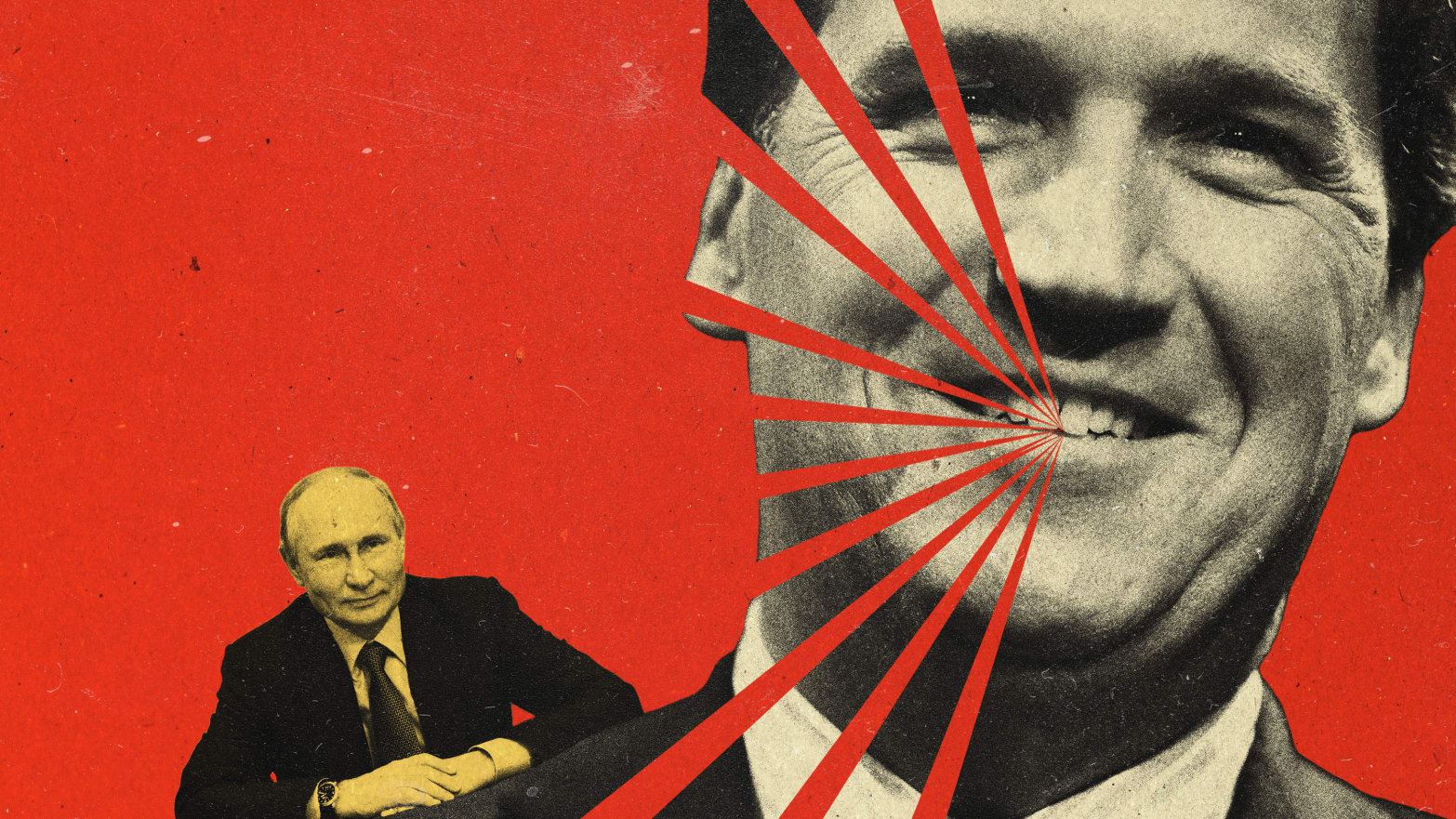Night after night, the host of the top-rated show on Fox News repeats Vladimir Putin’s talking points justifying aggression against Ukraine and opposing U.S. aid to that threatened sovereign country. Tucker Carlson’s influence is felt across right-wing social media, where it is amplified by figures such as Steve Bannon, Mike Cernovich, Glenn Greenwald, and Mollie Hemingway. A highly visible coterie of socially conservative intellectuals also argues the case against helping Ukraine.
Meanwhile, day after day, Republican officeholders in the House and the Senate urge more support for Ukraine. That list includes not only traditionalists such as Senator Roger Wicker of Mississippi, but also many legislators who got close to former President Donald Trump, such as Senators Tom Cotton, Ted Cruz, and Lindsey Graham.
Mitch McConnell, the top Republican in the Senate, has backed the Biden administration’s approach, as have the top Republicans on the House Intelligence and Armed Services Committees. House Minority Leader Kevin McCarthy has blasted Joe Biden’s Ukraine policy as too weak on Russia, not too strong.
[S]ome conservative talking heads have embraced the politicians’ pro-Ukraine position. National Review editorialized in favor of aid to Ukraine, for example. The right-leaning Commentary has published important Ukraine statements too. The Wall Street Journal editorial board has also written forcefully for deterrence of Russian aggression.
Russia-Ukraine is becoming a trial of strength, not only between Putin and NATO, but between different parts of the conservative world. Over the past half-dozen years, such intra-conservative disputes have usually ended in abject defeat for Republican elected officials. In New York magazine this week, for example, Jonathan Chait details the long, slow yielding of Republican politicians to anti-vax delusions.
Yet some signs show that with Ukraine and Putin, the conservative entertainment complex may have overstepped. A new poll by the Pew Research Center finds that large majorities of Americans view Russia as an enemy or a competitor. Large majorities regard the Russian buildup against Ukraine as a threat to U.S. interests. Even more interesting, Pew finds—for once—no significant partisan disagreement between Republicans and Democrats over the Russia-Ukraine issue.
As powerful as Fox News messaging is, scenes of violence after Russian aggression sends Ukrainian refugees streaming westward to safety would be powerful too. Americans are never eager to get involved in other people’s fights. But they remain deeply committed to a vision of their country as a force for good in the world. Foreign dictators who counted on American passivity in the face of aggression, and isolationists who hoped to profit politically from that passivity, have again and again been jolted by Americans’ dislike of tyrants and bullies. For all of Americans’ weariness after the 9/11 wars, for all of the polarization and radicalization of U.S. politics, Putin and his friends on American TV and social media may find themselves surprised by another such jolt.

No comments:
Post a Comment